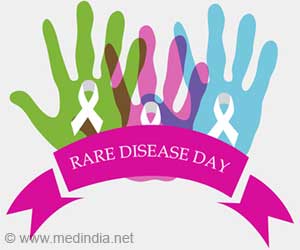Ketogenic diet mainly consists of a low carbohydrate diet which leads to increased production of ketones. Ketogenic diets reduce exercise performance of athletes in activities that are dependent on anaerobic energy systems.
- Ketogenic diet mainly consists of a low carbohydrate diet
- When the body does not have enough stores of carbohydrate, it produces ketone bodies as an alternate source of fuel
- Ketogenic diets reduce exercise performance of athletes in activities that are dependent on anaerobic energy systems
A ketogenic diet plan consists of a low carbohydrate diet. The diet mainly reduces the carbohydrate intake to less than 50 grams per day whereas, the proportion of protein and fat increases. Ketogenic diet leads to the increased production of ketone bodies in the bloodstream and forces the body into a state of ketosis.
Details of the Study
The study included 16 men and women participants. The exercise performance of these participants was observed after following either a low-carbohydrate ketogenic diet or a high-carbohydrate diet for four days. The research team also examined the anaerobic performance of the participants.
The research team noticed that the participants did not perform well in the exercise task after following the ketogenic diet.
The term 'ketogenic diet' in a broader term denotes a low carbohydrate diet, including Atkins, said Weiss. Generally, People misunderstand as a low carbohydrate and high protein diet. But, a true ketogenic diet contains normal levels of protein.
"Right now in the general public, it's touted for weight loss. Some studies have shown that it is effective for weight loss. I worry, though, that this may be a lot of smoke and mirrors. A typical diet is 60 percent carbohydrate. So, if you limit carbs, you might find yourself just not eating that much. If you eliminate most food options, you may just be losing weight because you are cutting calories," said Weiss.
"The energy metabolism system that's affected is anaerobic. Watching the summer Olympics, the 100-meter sprint and the triple jump depend on this system. You might say that this doesn't relate to me. But for someone with low fitness, they use this same metabolism to get up the stairs. Every day people use this kind of metabolism without realizing it. This study shows that this energy system is compromised by this type of diet."
Weiss highlights that there are populations who are benefited by the ketogenic diet. For example, patients who have been diagnosed with epilepsy benefit from this diet. For those with abnormal cell metabolism that causes seizures thereby, allowing the cells to feed on the ketones which can be helpful.
Findings of the Study
Short-term low carbohydrate, ketogenic diets reduce exercise performance of athletes in activities that depend on anaerobic energy systems, reported Weiss. These findings have clear performance suggestions for athletes, especially for high-intensity, short duration activities, and sports.
The study mainly suggests that athletes should be advised to avoid these type of low-carbohydrate diets unless there is a strong need to follow.
Reference:
- Kymberly A. WROBLE, Morgan N. TROTT, et al. Low-carbohydrate, ketogenic diet impairs anaerobic exercise performance in exercise-trained women and men: a randomized-sequence crossover trial, The Journal of Sports Medicine and Physical Fitness (2018)DOI: 10.23736/S0022-4707.18.08318-4
Source-Medindia
















